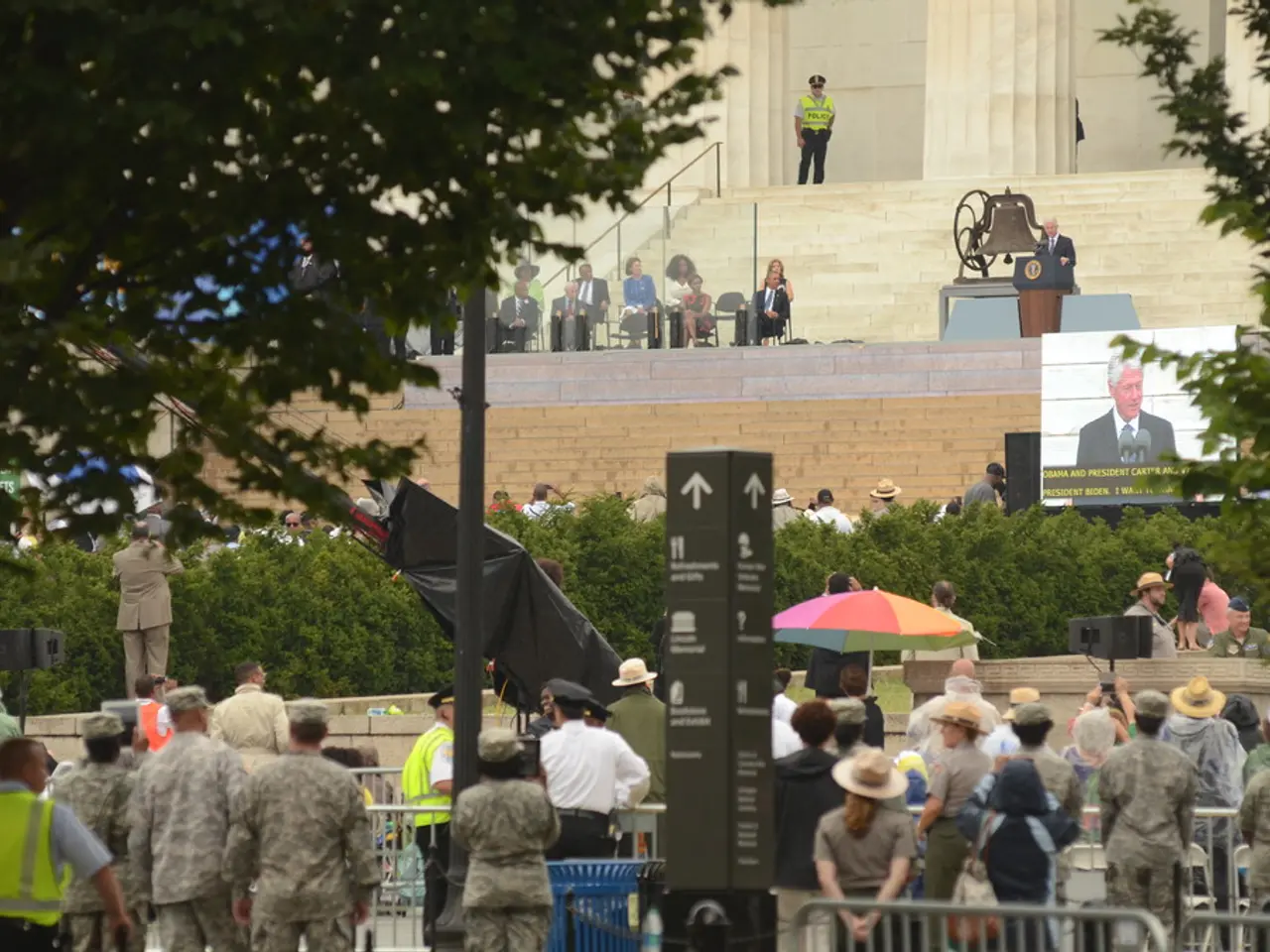United States Trade Agreement: Remark by Piyush Goyal on Protecting India's Interests Amid Timeline Apprehensions
The India-US trade deal is in its final stages, with intensive negotiations ongoing to finalize the agreement before the July 9 deadline, when the current 90-day pause on reciprocal tariffs expires.
India is cautious about granting broader market access for US agricultural and dairy products, as these sectors are sensitive due to their impact on the country's small farmers. Union Commerce and Industry Minister Piyush Goyal has reiterated that India will sign a trade deal with the United States or any other developed country only if the agreement is mutually beneficial and protects the country's national interests.
The US has imposed tariffs on Indian imports, with rates ranging from 60% to 70% and 10% to 20%. President Donald Trump announced that about "10 to 12 countries" will receive letters on Friday, with more letters being sent over the next few days, informing them of their tariff rates.
India, on the other hand, is pushing for significant tariff concessions for its labor-intensive exports such as textiles, leather, footwear, gems and jewellery, leather goods, plastics, chemicals, shrimp, oilseeds, grapes, and bananas. In exchange, India has agreed to import more US natural gas and farm products such as fruits and nuts to help reduce the trade deficit.
Key issues, such as trade in agricultural and dairy products and tariff relief for Indian exports, are still being negotiated. The US is also pressing for duty reductions on industrial goods, electric vehicles, wines, and petrochemical products.
The Indian negotiation team, led by Special Secretary Rajesh Agrawal who specializes in agricultural trade, recently returned from the US after talks. The process is guided by Prime Minister Narendra Modi and Commerce Minister Piyush Goyal, who are emphasizing protection of core domestic sectors while aiming to enhance bilateral trade.
The agreement is part of a broader vision to increase bilateral trade from the current $191 billion to $500 billion by 2030. However, Indian officials caution against rushing a deal purely based on deadlines, stressing that national interest and sectoral protections are paramount.
The US had imposed tariffs on Indian imports on May 3, 2025, but paused reciprocity for 90 days, with the pause expiring on July 9, 2025. Negotiations are intensifying to finalize an interim agreement before this deadline to avoid a tariff escalation.
Sources: [1] The Hindu BusinessLine [2] The Economic Times [3] The Times of India [4] PTI [5] Press Trust of India
The ongoing negotiations on the India-US trade deal include discussions about policy-and-legislation regarding free trade, which falls under the purview of politics. These discussions involve key issues such as tariff concessions for India's labor-intensive exports and trade in agricultural and dairy products, and they are being closely monitored by the general news media.
As the July 9 deadline approaches, India is pushing for favorable terms that protect its core domestic sectors and national interests, while the US is pressing for duty reductions on various products such as industrial goods, electric vehicles, wines, petrochemical products, and fruit and nut farm products, as part of the broader vision to increase bilateral trade.






